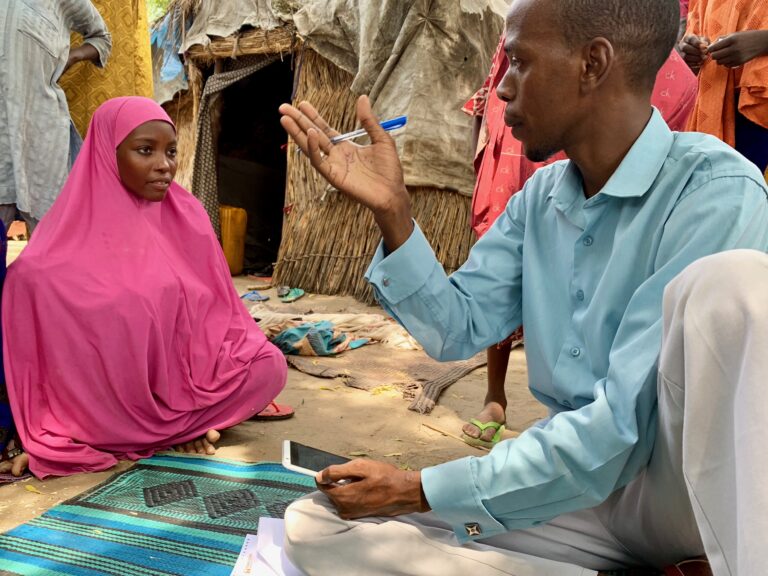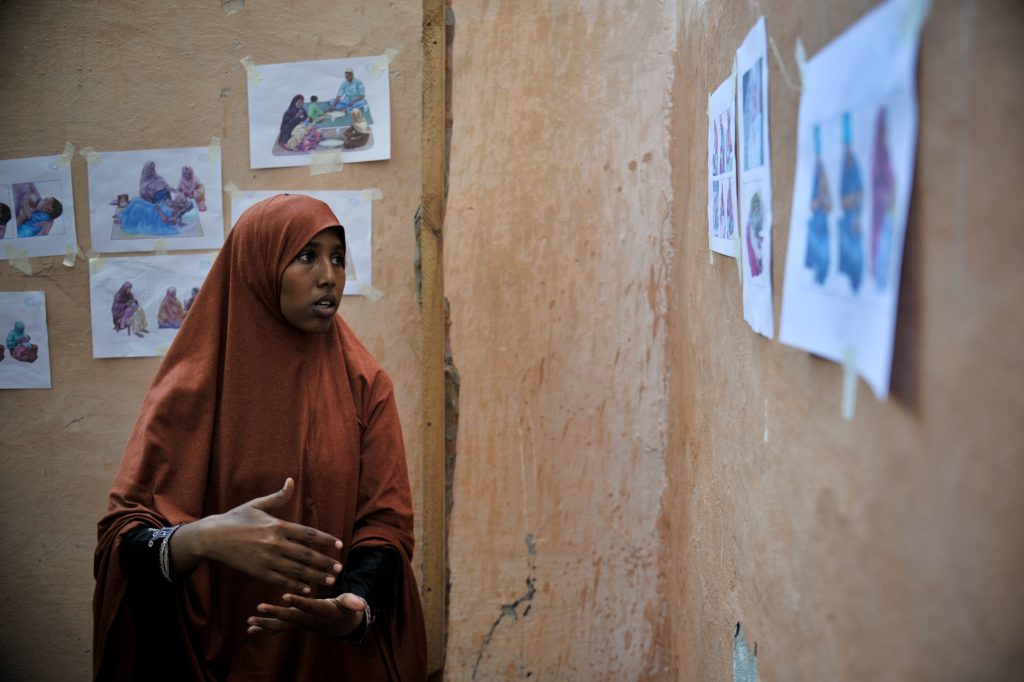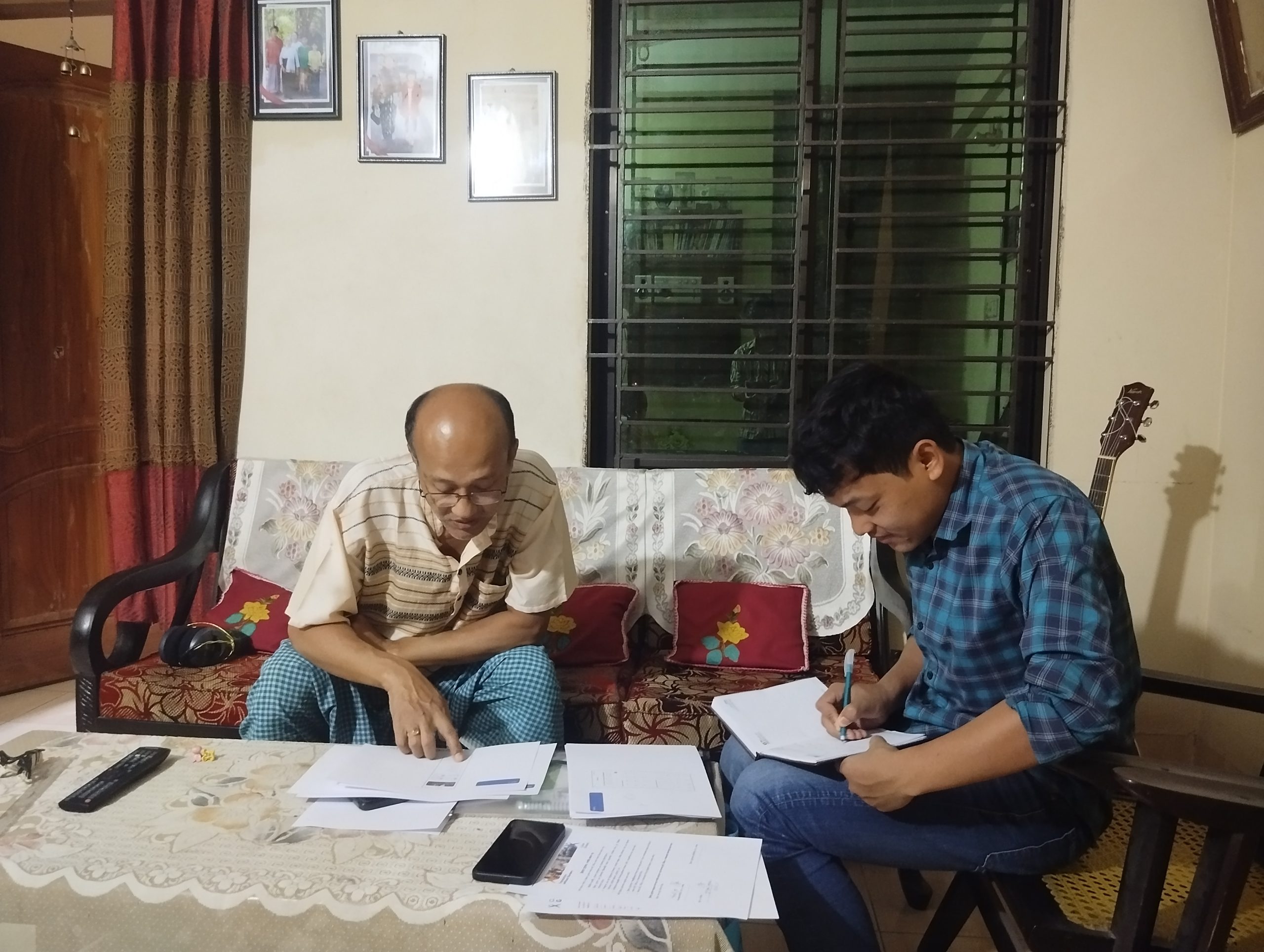RESEARCH AND DATA
Our collaborative approach lets communities shape research that meets their needs
At the core of our work is the recognition of a critical issue: the language gap. There is surprisingly little information about the languages people speak, prefer, and trust—especially in crisis-affected regions. This lack of data makes it difficult for humanitarian, health, and other organizations to effectively communicate with communities in a way that is both culturally relevant and understandable. This gap not only hampers effective communication but also risks further alienating crisis-affected communities, leaving their needs and insights unheard.
Our research focuses on providing organizations with the evidence basis for effective two-way communication with the communities they serve.
The CLEAR Global team of research and data experts specializes in data visualization and operational research on communication and language dynamics. This is our research approach:

OUR RESEARCH APPROACH
Our research is rooted in a human-centered approach, where the voices and needs of the communities we serve are at the forefront of every project. We are committed to a participatory and feminist methodology, moving away from traditional, extractive neo-colonial research practices. Instead, we prioritize inclusive, collaborative processes that empower communities to contribute meaningfully to the research. Our approach emphasizes the importance of active listening and community engagement in local languages as essential solutions to overcoming the language gap, ensuring that the voices and needs of affected communities are heard and addressed.
To ensure that we capture the full complexity of each context, we employ a diverse range of research methods, including qualitative, formative, and quantitative approaches. We develop tailored research methodologies to inform effective communication by, for instance, working directly with community members to identify widely understood words and phrases, while also uncovering language that may be limiting or stigmatizing.
Our research focuses on key topics that are often sensitive and under-addressed, bringing much-needed attention to issues that deserve greater recognition and understanding. Central to our work is showcasing the rich diversity of languages used across the regions we study, identifying who speaks which languages and where. This linguistic mapping is essential to accurately capturing the experiences of marginalized communities, ensuring that their voices are truly reflected in our research findings and that programs designed to support them are more effective and inclusive.
Some of our research work
Our Language Use Data Platform provides interactive visualizations, maps, and detailed language data to support more effective communication in aid programs. Explore, visualize, and download data on language use across over 40 countries and 1,000 languages along with practical resources to help you apply these insights in your work.
Our glossaries provide accurate translations of specialized terminology to improve communication between organizations and communities. Designed to assist field staff, interpreters, and anyone working with diverse linguistic communities, these resources ensure clear understanding of technical concepts.
Our research reports offer in-depth analysis and evidence-based insights to inform policy, programming, and advocacy. Our research takes a human-centered, participatory, and feminist approach that prioritizes local voices and languages, using inclusive methodologies to uncover communication barriers and support more effective, community-driven solutions.

This report reveals that humanitarian actors in Somalia often assume that Northern Standard Somali (Mahaa) is universally understood, an assumption disproven by qualitative and quantitative data showing low mutual intelligibility with dialects like Maay and Benadiri, particularly among internally displaced persons and minority communities.

This study explores the extent to which sexual exploitation, abuse and harassment (SEAH) reporting and referral systems in eastern DRC are aligned with community and survivor preferences, focusing on the languages, formats, and communication channels used.

This research explores the problems that Marma teachers from the Chittagong Hill Tracts of Bangladesh face in implementing mother tongue education. We also studied the potential for language technology to bring Marma into the classroom and improve educational outcomes for Marma children.
Get in touch for tailored research support.
Language data, research and advocacy are needed to ensure that speakers of marginalized languages are heard. Your support can have a scalable impact, reaching more people, in more places, with more languages.